Nonthaburi, Thailand – The International Mental Health Workforce Training Program 2024 officially commenced its in-country phase on July 22 at the Mida Hotel Ngamwongwan in Nonthaburi, Thailand. This important event marks a significant collaboration between the World Health Organization (WHO) and the Department of Mental Health (DMH) Thailand, aimed at strengthening human resources for mental health in Thailand and in the South-East Asia and enhancing the quality of mental health and psychiatric services across the region.
Addressing Urgent Mental Health Challenges
The rising prevalence of mental health disorders, exacerbated by the COVID-19 pandemic, has made the need for accessible and effective mental health services more urgent than ever. Dr. Jos Vandelaer, WHO Representative to Thailand, emphasized the importance of mental health in healthcare. He encouraged participants to be change agents and share their knowledge to amplify the training's impact. He also conveyed a message from WHO Southeast Asia Regional Director, Ms. Saima Wazed, who highlighted the need to address the mental health treatment gap, strengthen community-based services, and adopt a holistic, recovery-oriented approach.
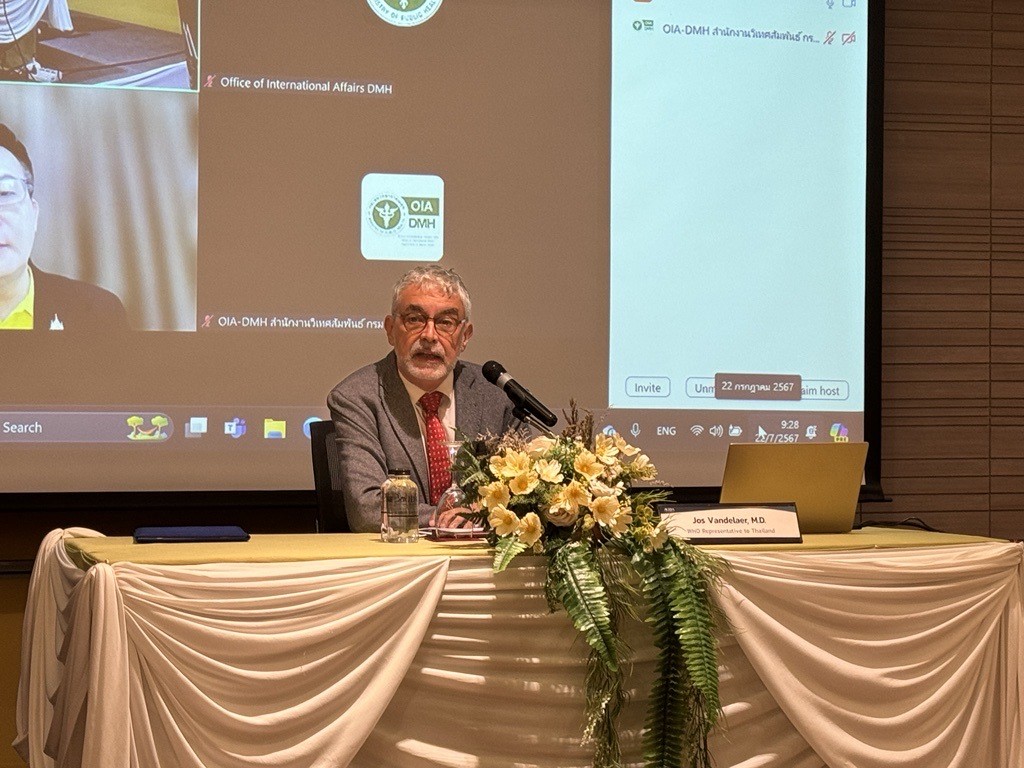
Dr. Jos Vandelaer at the 2nd International Mental Health Workforce Training Program with a call to action for enhanced mental health services. © WHO Thailand 2024
"As we all know, the treatment gap for mental health conditions in our Region remains unacceptably high. Over 75% of people with mental, neurological, and substance use disorders in this Region do not receive the treatment they need. This is a moral and public health crisis. Stigma and discrimination prevent many from seeking help. Access to quality, affordable mental healthcare remains limited, especially in rural and underserved areas," stated Ms. Wazed.
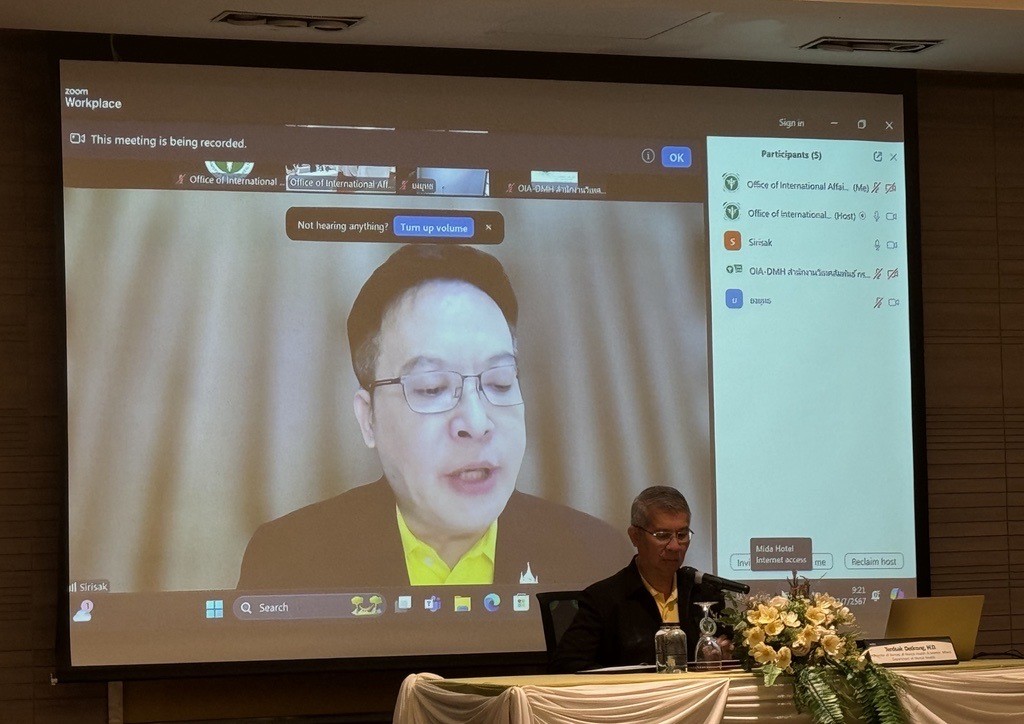
Dr. Sirisak Thitidirokrat, Deputy Director-General of the Department of Mental Health, emphasizes the importance of mental health workforce development during his speech at the 2nd International Mental Health Workforce Training Program in Nonthaburi, Thailand. © WHO Thailand 2024
The ceremony included a statement by Dr. Sirisak Thitidirokrat, Deputy Director-General of the Department of Mental Health. He emphasized the importance of the training program in promoting mental health academic excellence and developing the mental health workforce. “The Bureau of Mental Health Academic Affairs has implemented training programs to ensure the delivery of quality mental health and psychiatric services by highly competent professionals. This initiative aims to promote mental health, manage risk factors, screen individuals at risk, provide supportive therapy, refer people with mental health conditions to specialized facilities, and care for individuals with complex psychiatric problems,” said Dr. Sirisak.
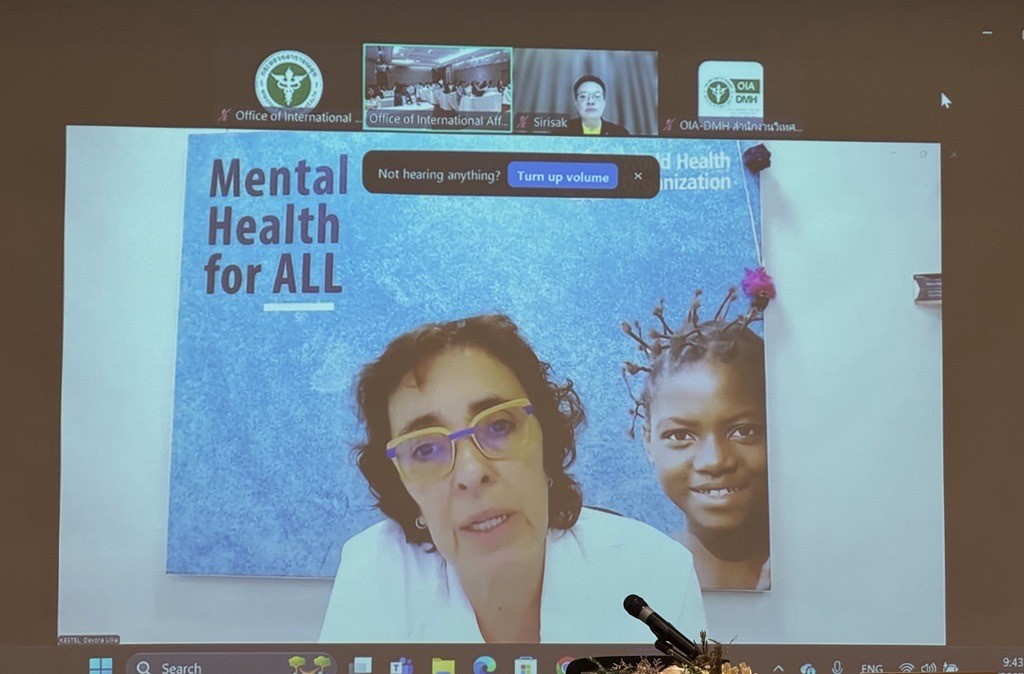
Dr. Devora Kestel, WHO HQ Director for Mental Health, addressed mental health workforce development in his virtual message to the 2nd International Mental Health Workforce Training Program participants. © WHO Thailand 2024
Dr. Devora Kestel, WHO Headquarters, Director for Mental Health, congratulated the Thai government and DMH for organizing the ambitious international program. She highlighted the importance of capacity building, sharing best practices among participants from diverse backgrounds, and utilizing tools like the Mental Health Gap Action Programme (mhGAP) to enhance mental health service delivery. mhGAP is a WHO initiative that provides guidance and resources for countries to integrate mental health care into primary care settings, train healthcare providers, and raise awareness about mental health issues. "We are committed to supporting countries in their efforts to build mental health systems that are accessible and effective for everyone," Dr. Kestel stated.
Dr. Andrea Bruni, WHO South-East Asia, Mental Health Regional Advisor, presented a regional overview of the situation of mental health in the Region and the support that WHO is providing to Thailand and other Member States. He stated that mental health conditions are highly prevalent and affect 1 in 7 people in the South-East Asia region. He also highlighted the role of the Paro Declaration on universal access to people-centred mental health care and services and the main objectives of the Mental Health Action Plan for the WHO South-East Asia Region 2023-2030.
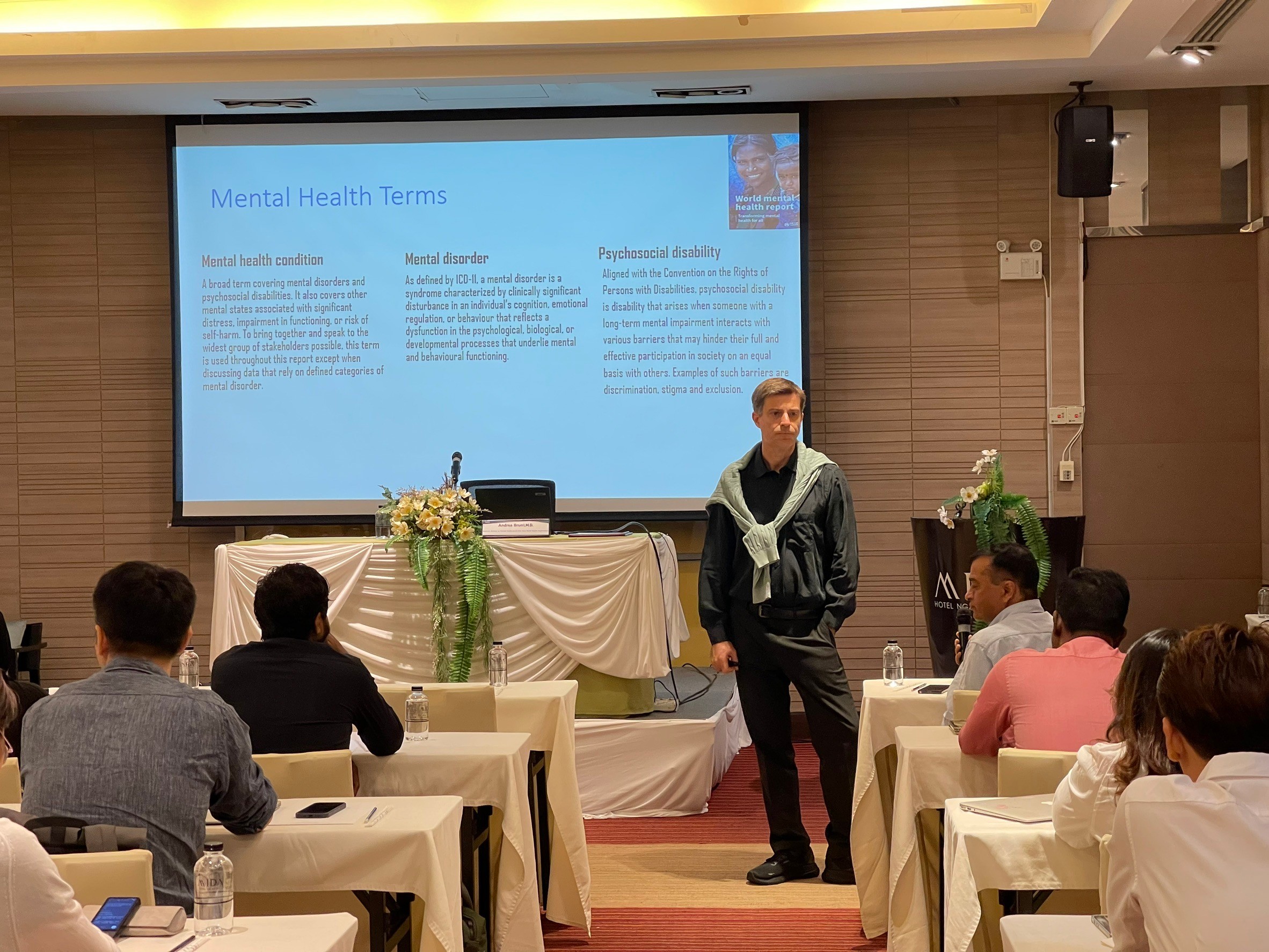
Dr. Andrea Bruni, WHO SEARO Mental Health Regional Advisor, gives a lecture on the mental health situation in South-East Asia, highlighting the Paro Declaration and the Mental Health Action Plan 2023-2030. © WHO Thailand 2024
Program Overview and Vision
The training program, running from July 8 to 29, is structured in two phases: an online component from July 8 to 19, covering essential topics such as mental health policy and legislation, and an onsite component from July 22 to 29, including practical sessions and study visits to mental health facilities. This comprehensive approach aims to equip mental health professionals with the skills to address mental health challenges effectively.
This year’s program welcomed the participation of 33 health professionals from across the Southeast Asia region, representing countries such as Bangladesh, Bhutan, Cambodia, China, Indonesia, Maldives, Nepal, Sri Lanka, Vietnam, and Thailand. The diverse group of participants underscores the program's commitment to fostering international collaboration and knowledge exchange.
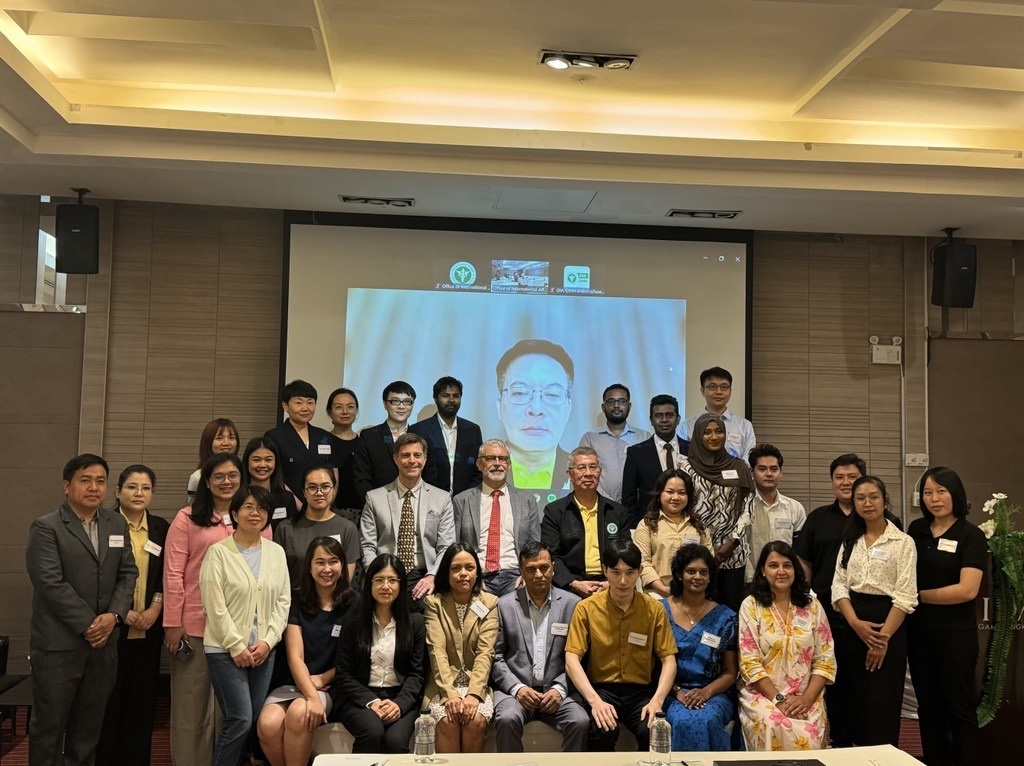
International participants unite in Thailand for the 2nd International Mental Health Workforce Training Program, working together to strengthen mental health services across the region. © WHO Thailand 2024
Encouraging Behavioural Change
This initiative aims to increase awareness and understanding of mental health's importance, urging policymakers and healthcare providers to integrate mental health into primary health care. The program seeks to establish Thailand as a global knowledge hub for mental health and well-being, inspiring a future where mental health is recognized as a fundamental human right and a cornerstone of sustainable development.
